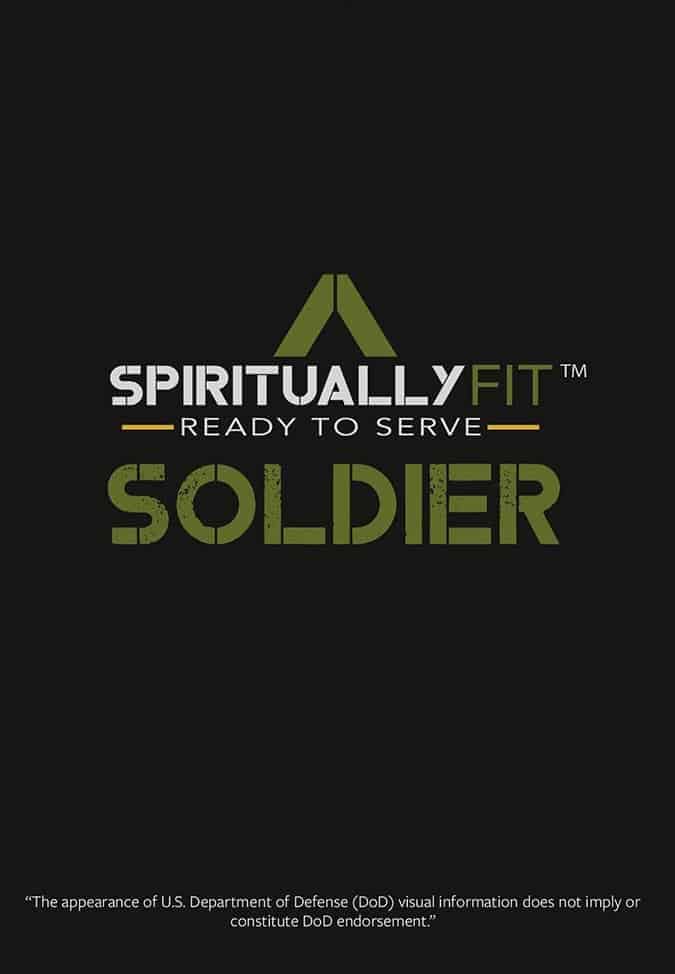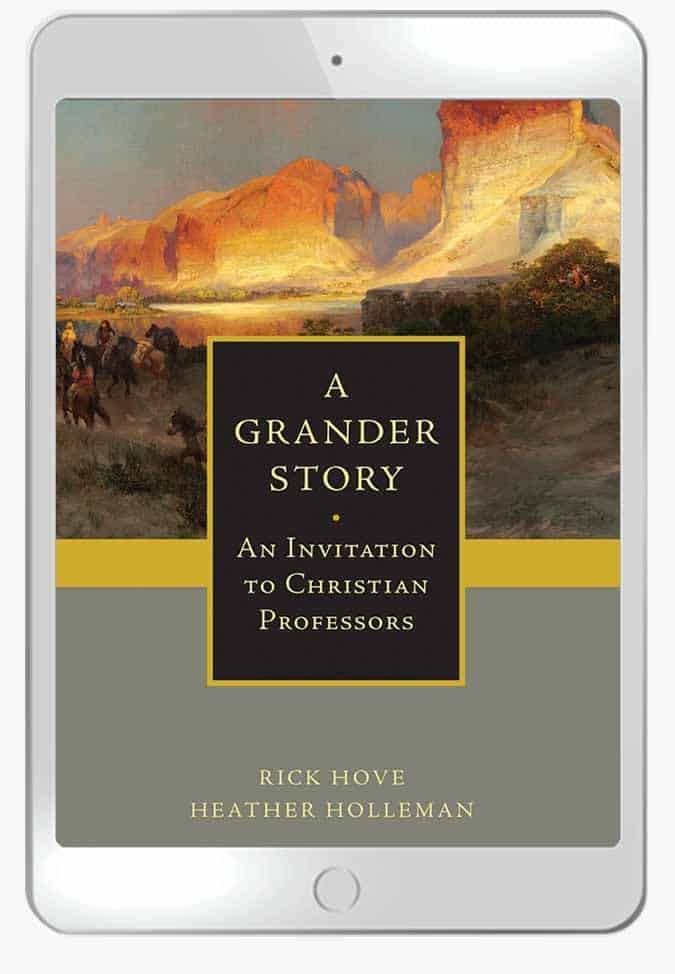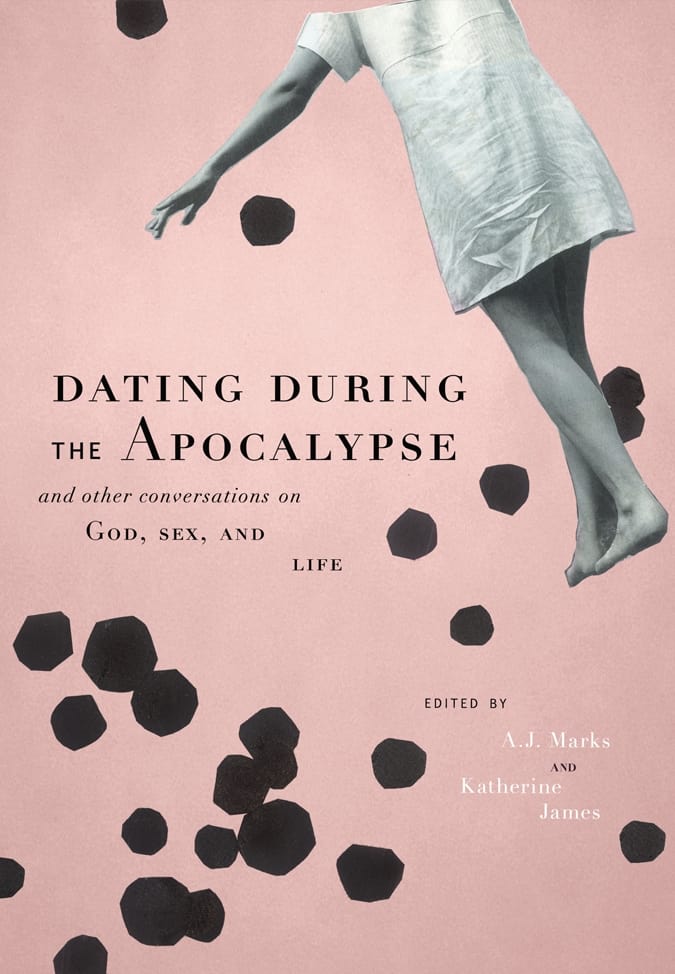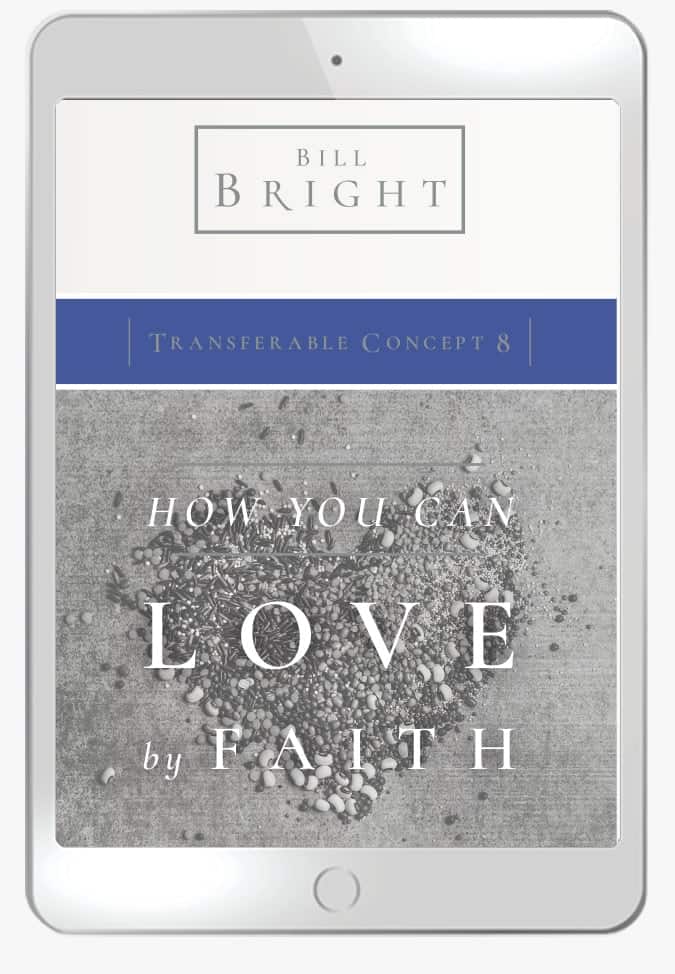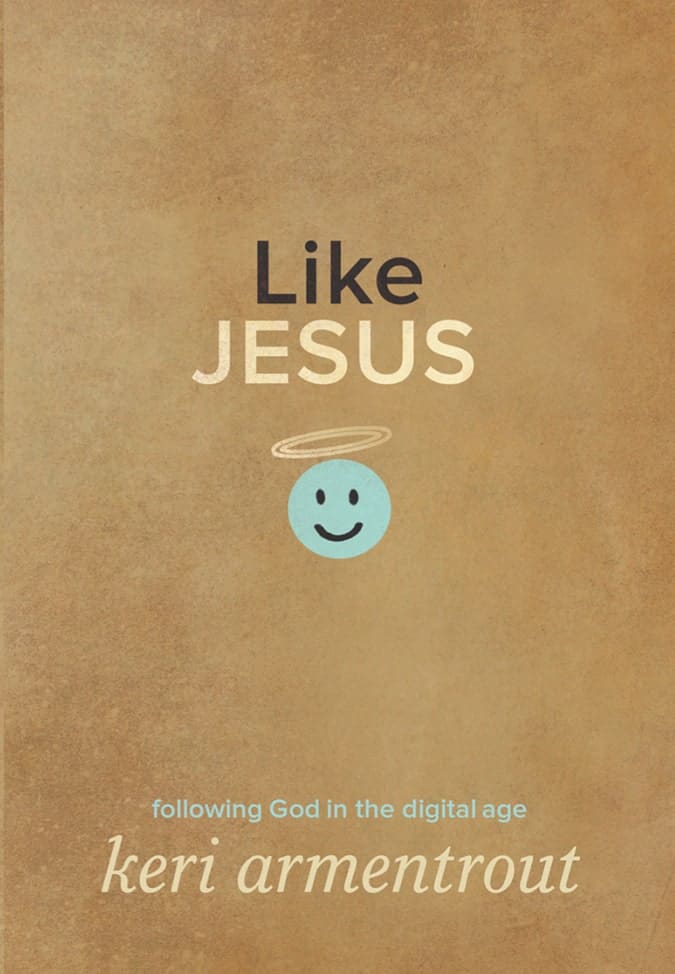FLESH SERIES: Blood Brothers

“Jumbo shrimp” and “healthy Whopper” are examples of what we would label oxymorons. “Personal Christianity” is another. Christianity was designed by God to be lived out in a community of believers.
But the gospel was also designed to go to all nations, and as it does, certain components are lost or watered down by the culture into which it penetrates. One of the ways in which America has brought distortion to the Christian faith is through its value of individualism and autonomy. So what seems perfectly natural for us – our own personal Jesus – would have seemed rather peculiar to the early church.
Continue This Chapter with Group Discussion Material in the MyCru App →That’s not saying that our salvation is not personal. It is intensely so. We are also not saying we don’t have an individual devotional life. It simply means that like a family, our growth and spiritual nurture was designed to be a communal (family) activity.
In the book, “Heaven is a Playground”, a writer from Sports Illustrated spends the summer on the basketball courts of Brooklyn’s Bedford-Stuyvesant. The great tragedy he witnesses is not that the players lack the ability to play professional basketball, but that they are too individualistic to learn to play as a team – everyone plays 1 against 5. Sadly, after being recruited, player after player would return to the playground within a year. They couldn’t make the “team thing” work.
This basketball scenario is a picture of Christianity in America – everyone going one-on-one against their flesh, the world and the devil. Very few of us have a Michael Jordan capacity to pull it off.
If you are going to see victory in your struggle with lust and pornography, you will need the power of a team, of community and of accountability. God has designed our walk of faith to be lived out in community, and He doesn’t transgress that design. What that means is that you and I have certain issues and sin where we will never see victory, or full victory, without the help of others. One of God’s reasons for allowing these acute sins is to drive us to get involved with community. Pornography and lust for most men are those sins; they will either drive us to community or to playing wind chimes in the observation room of the psych ward.
Someone to Confess
Okay, first on our grocery list: you need at least one other person to whom you can confess your struggles, victories and failures. Because guilt in this area is so crippling, you will be amazed by how others have the ability to be Jesus to you, and express God’s forgiveness, helping you to feel cleansed. This person is someone to whom you must commit to sharing everything, even your deepest, darkest secrets. In doing so, crippling shame will be broken in your life causing the enemy to lose so much of his power.
Alcoholics Anonymous (AA) has been one of the most effective programs of the modern age for treating alcoholism. The 12 steps of the program are built on Christian principles – loosely. Of those who have seen success through the program, most cite Step Five as the turning point. It reads, “Admitted to God, to ourselves and to another human being the exact nature of our wrongs.” This confession is the major reason people get well in AA. That is the genesis, and genius of, “Hello, my name is Bob, and I’m an alcoholic.”
First John 1:9 says, “If we confess our sins, he is faithful and just and will forgive us our sins and purify us from all unrighteousness.”
Notice the emphasis in that verse on cleansing and forgiveness. Now look at James 5:16, “Therefore confess your sins to each other and pray for each other so that you may be healed.”
The prayer of a righteous man is powerful and effective. What’s the emphasis in this verse? Right! On getting better. If you desire to see victory in the area of lust and pornography, you will need to find another person to whom you can confess “the exact nature of your wrongs,” because pornography is just as addicting as alcohol.
My rule of thumb is that within 24 hours of making a poor choice in the sexual area I will have called or met with someone and told them the exact nature of what I did. Ideally, reaching out to this person for help before you make the poor choice is what you want to aim for. But in the event of making a choice not to do that, be quick to confess to your friend.
Someone to Confront
Christian teacher and scholar Dr. Ken Boa relates the following lesson on the need for correction and confrontation:
The tragedy of King David underscores what can happen when Christians fail to create a structure in which they are answerable for how they spend their personal time. Ultimately, as he did with David, God will hold everyone accountable. The Bible shows us the dangers of living our lives free of accountability: In the spring, at the time when kings go off to war, David sent Joab out with the king’s men and the whole Israelite army. They destroyed the Ammonites and besieged Rabbah. But David remained in Jerusalem.
One evening David got up from his bed and walked around on the roof of the palace. From the roof he saw a woman bathing. The woman was very beautiful, and David sent someone to find out about her. The man said, “Isn’t this Bathsheba, the daughter of Eliam and the wife of Uriah the Hittite?” Then David sent messengers to get her. She came to him, and he slept with her. (She had purified herself from her uncleanness.) Then she went back home. The woman conceived and sent word to David, saying, “I am pregnant.” 2 Samuel 11:1-5
One tragic factor that often gets overlooked in this story is that Uriah wasn’t just a faceless soldier in David’s army. Uriah was one of David’s mighty men (cf. 2 Samuel 23:39). This was a man with whom David had a relationship.
Most leaders don’t experience a sudden blowout in their lives. More often it’s a slow leak that leads to disaster. Or, to use Derek Kidner’s phrase, “We deceive ourselves by the smallness of our surrenders.” In other words, a man can deceive himself into thinking that a small compromise will not matter. But small steps, taken consistently, add up to a great distance. Small compromise has a snowball effect; momentum develops, and before we realize what’s happening, life spins out of control.
Now, while the rest of his army was at war, he stayed at home. Apparently, nobody dared question the wisdom of his hiatus. With nobody to answer to, he broke three of the Ten Commandments by coveting his neighbor’s wife and committing the acts of adultery and murder. As the details of David’s affair unfold, we can’t help but wince. David looks; David wants; David takes; David tries to cover up the consequences; David thinks he’s gotten away with it.
But then we come to the most important verse in the chapter, verse 27. There Samuel informs us tersely, “But the thing David had done displeased the Lord.” While David could hide his sins from his associates, he couldn’t hide them from God. The Bible assures us that our sin will find us out (Numbers 32:23). God sees what is done in secret (Psalm 90:8). Nothing is hidden from him or escapes his notice (Jeremiah 23:24). God may be slow to anger, but God does get angry. One day the Lord sent the prophet Nathan to confront David, and the king discovered that even kings are accountable for their actions.
When David was confronted with his sin, he had two options: Confession or denial. He will either be a man after God’s own heart, or he will go the catastrophic way of King Saul. Being a man after God’s own heart doesn’t mean we are flawless in our performance. Being a godly leader does not require us to practice sinless perfection. It does require us to be honest about our failures. David heard Nathan pronounce judgment from God, and he replied with six short words: “I have sinned against the Lord” (2 Samuel 12:13).
It’s not long before we find David composing Psalm 51 – a psalm of confession. In this psalm, David pours out his heart to God: Have mercy on me, O God, according to your unfailing love; according to your great compassion blot out my transgressions. Wash away all my iniquity and cleanse me from my sin. For I know my transgressions, and my sin is always before me. Against you, you only, have I sinned and done what is evil in your sight….You do not delight in sacrifice, or I would bring it; you do not take pleasure in burnt offerings. The sacrifices of God are a broken spirit; a broken and contrite heart, O God, you will not despise. Psalm 51:1-4a, 16-17
David knew that there was no sacrifice that would cover all these presumptuous sins of murder, covetousness and adultery. David knew there was nothing left to do but to throw himself on the mercy of God. The confrontation of a man of God leads David back into the arms of God.
Dietrich Bonhoeffer wrote, “Nothing can be more cruel than the leniency which abandons others to their sin. Nothing can be more compassionate than the severe reprimand which calls another Christian in one’s community back from the path of sin.” Jonathan had been a friend to David. He provided David with comfort and protection. There was a tremendous bond between these two as young men. Nathan cared enough for David to counsel or rebuke him when it was necessary. Both types of relationships are necessary for us.
If David had invited Nathan into his life, perhaps Nathan could have given David advice rather than reprimand. Bonhoeffer continues: When another Christian falls into obvious sin, an admonition is imperative, because God’s Word demands it. The practice of discipline in the community of faith begins with friends who are close to one another.
Words of admonition and reproach must be risked. If we are not intentional about inviting someone like Nathan into our lives, God will provide a Nathan for us. But by then it may be too late to spare us from the consequences. Wise Christians don’t wait for a crisis to establish accountability. Accountability relationships cannot be imposed; they must be invited. The onus is on us to establish structures and relationships that corral our sin and unleash our potential.
We must seek out godly people of mature character and give them permission to ask us the tough questions. This requires risk on our part. It requires honesty and vulnerability. However, as anyone who has suffered the consequences of a fall will tell you, an ounce of prevention is worth a pound of cure.
Lifting Partners
Accountability relationships aren’t simply to help sweep up the mess after you’ve crashed. When you go to a gym, it isn’t unusual to see someone on the bench press with a partner standing overhead screaming at him for “one more rep.” Lifting partners do that. They encourage one another and push each other to perform better than one might individually.
Trapped alone and feeling rather lustful, I felt the day was going in a bad direction. Some bad seed had gotten planted in my mind and had triggered off my lust mechanisms. Five years ago, I would have pushed through and tried to ride the struggle out. But these days, I find it much more effective to call someone and let them know I’m not doing so well. I’m not calling to confess but to bring in one of my lifting partners. I need this person to help me to shoulder the weight because it is about to come crashing down on my larynx. Who can you call when your feel your mind and body chemicals are moving in lustful directions?
A Men’s Group
One of the healthiest things you can be involved in is a Bible study full of men, where you not only study the Scriptures but also can deal with issues concerning sexual purity. You want a place where the open dialogue doesn’t end when the Bible study does. Because pornography and lust are so powerful and such a large part of our lives, the topic needs more time than a one-week discussion.
The power of a men’s group goes beyond two hours a week and leads to deep relationships: hanging out together, calling each other to process stress, emotions and sin, emailing and texting throughout the week. It becomes powerful when it is a true community where everyone really knows each other, warts and all. If you are not part of a group, then start one. Use the material provided in this book as the foundation, but do move on to other topics, using the complete counsel and ministry of Scripture.
Proactive vs. Reactive Accountability
Many people tend to practice what I call reactive accountability. Calling someone a day or two after you had a really rough day and looked at porn. Isolating over the weekend and trying to fight lust on your own and then meeting up to confess a laundry list of sins the following week. Instead, I want to propose the idea of proactive accountability which will help you battle well.
Proactive accountability involves a daily choice to reach out to others to process stress, emotions and the triggers that set you up to want to cope through sin. Proactive accountability is battling daily with other lifting partners who don’t simply stand idly by, consoling you for being a sissy-pants, “Bummer you couldn’t lift it, dude.”
Lifting partners challenge you. Godly accountability knows how to give compassion but also challenge you. Challenge comes in the form of questions like: “So, what can you do differently next time and how can I help?” or “What do we need to do to help prevent this from happening again?” It means asking specific questions to keep people from glossing over accounts, and questions like: “How long were you online?” “Were they hardcore images?” “Did you watch a video?” Go the extra mile for each other. Tell your friend, “I’d love to help in any way I can, we’re in this together.”
The goal of accountability is not simply to ease our conscience, although that is a side benefit. The goal is to encourage and push one another on. We ask for accountability and give it to others so that we may all one day give a good report as we stand before God.
What steps do you need to take to bring your life and lust into the light and strength of community? Are you a part of a group, or do you need to start one? Who can you initiate with, with a call to confess your sin?
Practical Resources
I’d like to introduce you to two monumental resources that I’ve seen help countless individuals in the battle against lust.
First is an accountability app, rTribe, which you can download to your phone or tablet. Through the app, you can connect with friends to battle alongside, complete a daily check in, send an alert to friends when you’re triggered and track periods of victory over lust.
Second is the FASTER Scale, which is used and frequently referenced in “Living Free”.
“FASTER” is an acronym for Forgetting Priorities, Anxiety, Speeding Up, Ticked Off, Exhausted, and Relapse. Jesus says in John 10:10 that He came to bring us abundant life. Our goal is to experience this abundant life as we live in restoration, where we are experiencing God, connected with others and sticking to our priorities.
But the problem is we so quickly forget priorities on a daily basis and become consumed by the details and tasks of our lives. We take life into our own hands and move away from trusting God. These choices are how we begin the slow descent to Relapse on the FASTER Scale. It begins by Forgetting Priorities and experiencing one or more of the behaviors or thoughts in that category. If we don’t deal with those, we are soon in Anxiety, then so on, all the way down the scale to Relapse, which is however we cope when we’re at the end of our rope.
Facts about the FASTER Scale from Living Free- It’s a downward only scale. You can’t go back up; you can only get off of it by addressing the Double Bind.
- Each category stacks on top of one another; you don’t leave one and go to the next. Example: If I’m in Speeding Up then I’m also in Anxiety and Forgetting Priorities.
- The scale is generic until you become self-aware. All of us have different ways of experiencing each category.
- You can’t skip a category of the scale.
- At a minimum, a relapse is your go-to coping mechanism when you are emotionally exhausted. It could be sexual sin, drinking alcohol excessively, bingeing on Netflix or video games, overeating, etc.
A change of direction involves faith-filled action steps in the power of the Holy Spirit. It involves reaching out to friends for help, proactive accountability and addressing the fear or resolution we are avoiding that’s driving us down toward Relapse. I encourage you to master the FASTER Scale. Reach out and process where you are on the FASTER Scale consistently throughout the week.
Next Steps
- Begin identifying where you’re at on the FASTER Scale daily and reaching out to others to process how to get off the FASTER Scale. See the attached document.
- Begin filling out a FASTER Scale Exercise weekly, using the attached document.













